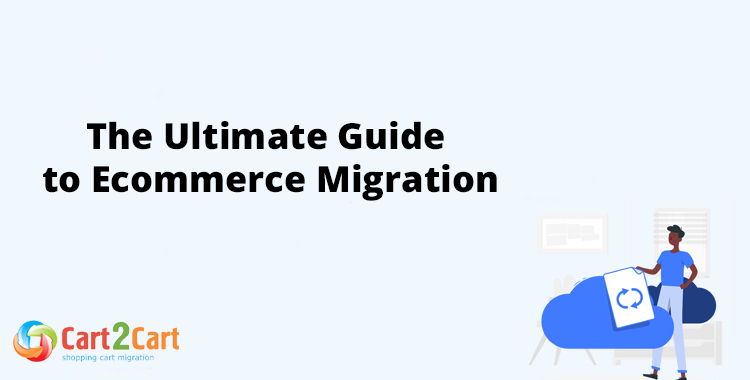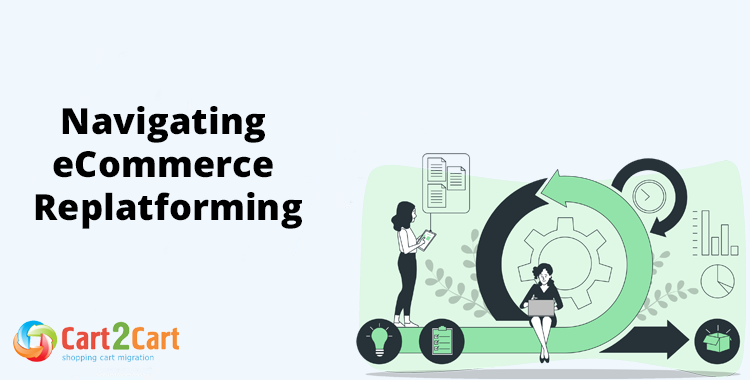Marketlive Migration
Seeking seamless Marketlive Migration? When you need to migrate from Marketlive, the safety and integrity of your online store are paramount. Cart2Cart offers the definitive, fully automated solution for your e-commerce platform transition. Our expert-led process guarantees zero downtime for your source store, eliminating any disruption to your sales. Forget complicated manual transfers; our secure, swift migration completes in just a few hours, ensuring a smooth, hassle-free experience. We comprehensively transfer all vital data, including products, customers, orders, SEO URLs, and much more, maintaining your valuable historical data and search rankings. Trust Cart2Cart for a proven, reliable, and expert-backed Marketlive migration that protects your business every step of the way.
How to Migrate to Marketlive
This step-by-step guide details how to securely migrate to Marketlive from any other e-commerce platform using Cart2Cart, ensuring complete data integrity for your online storefront.
- Register and Initiate: Create a Cart2Cart account to begin your platform switch. This initial step is free and takes only a minute.
- Connect Your Source Store: Provide the credentials for your current platform to allow secure API access for the data transfer.
- Connect Marketlive Target Store: Prepare your data in a CSV file according to Marketlive's import specifications. Upload this file to the Cart2Cart migration wizard to set up the target store connection.
- Select Data and Options: Choose which data entities to move, including products, SKUs, and customer orders. Configure crucial options like 301 redirects to preserve your SEO rankings.
- Run a Free Demo Migration: Launch a free test transfer to move a limited set of your data. This allows you to check the results directly in your new Marketlive store before the full replatforming.
- Launch the Full Migration: Once satisfied with the demo, start the full migration. The process runs on our servers, ensuring no downtime for your business.
Pro-Tip: Migrating to Marketlive via this method is a target-only process that relies on CSV file import. Ensure your CSV file is correctly formatted to prevent data mapping issues, and note that no additional plugins are required.
Automated migration
Just set up the migration and choose the entities to move – the service will do the rest.
Try It Free
Data Migration Service Package
Delegate the job to the highly-skilled migration experts and get the job done.
Choose Package
What data can be migrated from/to Marketlive
-
Products
-
Product Categories
-
Manufacturers
-
Customers
-
Orders
Choose all the extra migration options and get 40% off their total Price
We’re committed to protecting our customers’ data security. Check out our Security Policy
The Cart2Cart service has all the necessary functionality to migrate store databases on Marketlive of any size and complexity. Below are the most popular migration directions among our customers:
Help Center
Let’s figure out everything about Marketlive migration through
Cart2Cart.
Discover our checklist, related articles, and answers on frequently asked questions.

 June 7, 2023
June 7, 2023 The Ultimate Guide to eCommerce Migration: How-To Directions and Best Practices
Read full articlePay only for what you migrate - the cost depends on the number of records to be moved
Estimate Your Marketlive Migration Cost
Discover your exact Marketlive migration cost with our transparent tool, designed to provide an instant, tailored estimate. This quick calculator ensures you understand your Marketlive migration pricing upfront, with no hidden fees, making it a crucial step in planning your seamless move to Marketlive at the right Marketlive migration price.
Marketlive Monthly Pulse: The Evolution Towards Unified Commerce
This month's analysis of the Marketlive platform underscores a clear, strategic trajectory: the continued deep integration into the broader Kibo Unified Commerce ecosystem. While the Marketlive name represents a legacy of stability for enterprise retailers, its current evolution is a story of modernization and enhanced interoperability. The focus is less on standalone feature proliferation and more on fortifying the core engine that powers a sophisticated, composable commerce stack for demanding brands. This report synthesizes recent developments to illuminate the platform's momentum.
Enterprise Market Position: A Bastion of Stability
In a market often chasing ephemeral trends, the Marketlive engine within Kibo continues to hold its ground as a trusted platform for established, high-volume retailers. Our analysis indicates that the platform maintains its significant footprint among B2C and complex B2B enterprises, particularly those with annual revenues exceeding $100 million. This stability is not accidental; it is a direct result of a product strategy that prioritizes scalability and long-term reliability over flashy, unproven features. For decision-makers, this translates to a lower total cost of ownership and reduced platform risk, a compelling proposition in today's uncertain economic climate.
Core Infrastructure Resilience: Preparing for Peak Performance
This past month saw the completion of a significant Q3 infrastructure optimization cycle. While such updates rarely make headlines, their impact is profound. The engineering teams focused on enhancing database query efficiency and refining CDN caching protocols. The direct benefit for merchants is a tangible improvement in non-cached page load times and a more resilient architecture capable of handling extreme traffic surges during peak shopping seasons. This proactive strengthening of the core infrastructure is a critical assurance of uninterrupted revenue generation and a consistent customer experience, even under maximum load.
The Expanding Integration Framework: Fostering a Composable Future
The developer ecosystem saw a notable advancement with the rollout of an enhanced set of webhooks related to Kibo's Order Management System (OMS). This allows for more granular, real-time data synchronization between the Marketlive-powered commerce front-end and backend fulfillment logic. Why does this matter? It empowers brands to build more sophisticated omnichannel experiences, such as complex "buy online, pick up in-store" (BOPIS) workflows, with greater ease and reliability. This commitment to a robust API and event-driven architecture is pivotal for attracting enterprises committed to a best-of-breed, composable commerce strategy.
Flagship Advancement: Headless GraphQL API Enhancements
The most significant product evolution this month was the expansion of the platform's GraphQL API, specifically with new endpoints for faceted search and customer account management. This is a direct investment in the platform's headless capabilities. For merchants, this unlocks the ability to build highly customized, lightning-fast frontend experiences using modern frameworks like React or Vue.js, while still relying on the rock-solid Marketlive backend for commerce logic. The strategic value here is immense, offering brands the creative freedom of a modern frontend without sacrificing the enterprise-grade power of a proven commerce engine.
Fortifying Trust: Advanced DDoS Mitigation Protocols
On the security front, the platform quietly deployed an upgraded set of Web Application Firewall (WAF) rules and enhanced its DDoS mitigation protocols in partnership with its cloud infrastructure providers. In an era of increasing cyber threats, this move is a critical reassurance for enterprise clients. It demonstrates a proactive stance on protecting merchant data and ensuring service availability. For a CIO or CTO, this enhancement directly addresses key risk management concerns, reinforcing the platform as a secure and trustworthy partner for high-stakes e-commerce operations.
Streamlining Global Operations: A New Cross-Border Partnership
Expanding its global reach, the platform announced a deeper, certified integration with a leading international tax and compliance provider. This new partnership automates the complex calculations of duties, taxes, and cross-border shipping fees directly within the checkout process. The impact for merchants is a significant reduction in the operational friction of international expansion. It allows them to enter new markets more quickly and confidently, ensuring a transparent and seamless checkout experience for a global customer base and minimizing the risk of customs-related fulfillment delays.
Notable Migration: A Heritage Retailer Embraces Unified Commerce
This month, well-respected specialty tool and supply company, Allied Industrial, completed its migration to the Kibo platform, powered by the Marketlive commerce engine. An analysis of their complex business needs—including a vast catalog, B2B-specific pricing tiers, and a need for real-time inventory across multiple distribution centers—makes the choice clear. Allied Industrial likely chose the platform for its proven ability to handle complex B2B logic out-of-the-box while leveraging the integrated Kibo OMS to create the unified, omnichannel experience their professional customers demand. This migration is a testament to the platform's enduring strength in serving multifaceted enterprise clients.
Source: Analysis based on Kibo Commerce developer changelogs, industry partner announcements, and third-party market intelligence reports.
Just set up the migration and choose the entities to move – the service will do the rest.
Try It FreeDelegate the job to the highly-skilled migration experts and get the job done.
Choose Package















